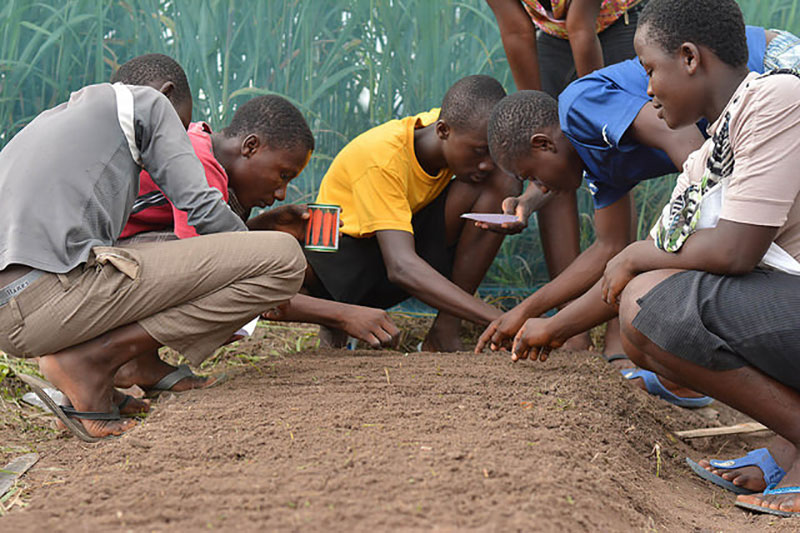Building Capacity For School-Based Agricultural Education In Developing Countries
A Note From Our Founder
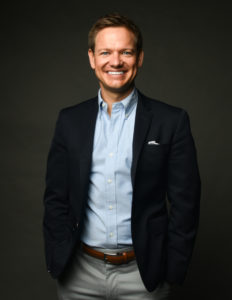 2020 has been a challenging year for all of us, but especially for the poor in low and middle income countries. David Beasley, the Executive Director of the World Food Program, has warned that 2020 will face the worst humanitarian crisis since World War II. In 2019, 821 million people around the world went to bed hungry, but by the end of 2020, there could be an additional 265 million people added to those rolls.
2020 has been a challenging year for all of us, but especially for the poor in low and middle income countries. David Beasley, the Executive Director of the World Food Program, has warned that 2020 will face the worst humanitarian crisis since World War II. In 2019, 821 million people around the world went to bed hungry, but by the end of 2020, there could be an additional 265 million people added to those rolls.
This current food crisis requires an “all-hands-on-deck” approach: increased funding for food aid, more resilient food systems, better farm-gate access to improved agricultural technologies and sustainable agricultural development programs. We believe school-based agricultural education (SBAE) can amplify many of these initiatives and should become a necessary tool for agricultural transformation.
Through our current research and development efforts, AgriCorps hopes to create an enabling environment for governments across sub-Saharan Africa to fund and manage SBAE. Through SBAE, farmers will have greater access to necessary technologies and youth will be better equipped to be 21st Century farmers.
To make this vision a reality, AgriCorps has launched a Movement to Scale up School-Based Agricultural Education. We hope you will join us!
SBAE Model is Put to the Test in Research Trial
AgriCorps, 4-H Liberia and Cultivating New Frontiers in Agriculture (CNFA) have initiated a partnership through 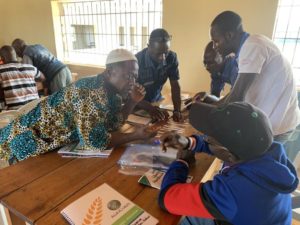 USAID’s Feed the Future initiative in Liberia. This partnership uses school-based agricultural education (SBAE) to introduce scientific knowledge and improved farming innovations to Liberian youth who then disseminate agricultural innovations to their parents and other smallholder farmers within the community.
USAID’s Feed the Future initiative in Liberia. This partnership uses school-based agricultural education (SBAE) to introduce scientific knowledge and improved farming innovations to Liberian youth who then disseminate agricultural innovations to their parents and other smallholder farmers within the community.
Qualitative evidence from a five-year study by AgriCorps, 4-H Liberia, and 4-H Ghana suggests that this system could improve agricultural yields by 50-100% for farmers in the community over the period of study. Students of agricultural education also cite increased confidence, improved incomes and social networks, and are 40% more likely to choose an agriculture field of study in high school or beyond.
To bring greater rigor to these early findings, noted economist Chris Udry, co-founder of Northwestern University’s Global Poverty Research Lab, and PhD Candidate Jimmy Lee have developed a Randomized Controlled Trial (RCT) to measure the efficiency of the model to enhance agricultural technology diffusion and youth development.
While field activities were grounded in mid-March due to the COVID-19, the Ministry of Education has given the green light to AgriCorps and 4-H Liberia to resume their activities in August.
AgriCorps Trains 165 Teachers, 4-H Staff
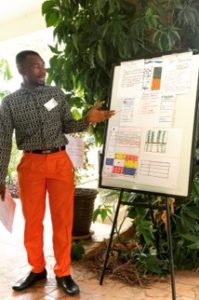 Phase One of the Randomized Controlled Trial (RCT) began in January with the training of 165 agriculture teachers and 4-H Liberia field officers. Each field officer oversees twelve 4-H clubs, working with teachers, students and parents. The trainings, a form of continuing professional development, span one-week and encompass classroom management strategies, gender equity, student-centered instruction, and 4-H Club development.
Phase One of the Randomized Controlled Trial (RCT) began in January with the training of 165 agriculture teachers and 4-H Liberia field officers. Each field officer oversees twelve 4-H clubs, working with teachers, students and parents. The trainings, a form of continuing professional development, span one-week and encompass classroom management strategies, gender equity, student-centered instruction, and 4-H Club development.
“A big part of SBAE is learning by doing and participants were fully immersed in a week-long experimental training,” said Ellen Lupkes, a co-facilitator for this training and member of AgriCorps Fellowship Class Four.
Phase Two of the RCT will take place at CARI (Central Agricultural Research Institute) in Suakoko, Liberia, and provide further technical agriculture training for field officers, teachers and a lead farmer from each community. An anticipated 400 participants will attend this training, scheduled for August and September, pending clearance due to COVID-19.
AgriCorps and Humanitas Launched Secretariat
AgriCorps is excited to announce the launch of the Secretariat for the Movement to Scale Up School-Based 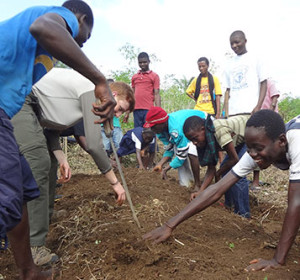 Agricultural Education (SBAE), housed by Humanitas Global, an international development organization based in Washington, DC.
Agricultural Education (SBAE), housed by Humanitas Global, an international development organization based in Washington, DC.
AgriCorps, 4-H Liberia, 4-H Ghana, the Borlaug Institute for International Agriculture at Texas A&M, Northwestern University, USAID and Humanitas Global, have been working on building resilient food systems through the empowerment of school-based youth in agriculture.
The Secretariat leads SBAE evidence dissemination and uptake, advocacy and engagement, civil society mobilization and partnership development – all efforts that support an enabling environment for scale. The focal countries for core 2020-2021 Secretariat actions are Liberia, Ghana, Nigeria, Ethopia and Kenya.
Scaling up SBAE requires engagement and action from across sectors. The Secretariat envisions region-wide expansion, catalytic investment, and global visibility for SBAE. The Movement to Scale-up School-Based Agricultural Education invites organizations from across sectors to join the journey.
Please contact kurpiewskim@humanitasglobal.com to learn more.


